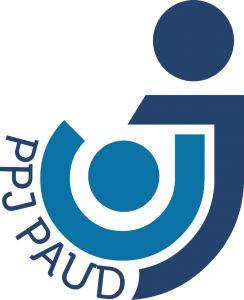KEGIATAN MENULIS EKSPRESIF BAGI IBU UNTUK MENGATASI STRESS PENGASUHAN SELAMA MASA PANDEMI
DOI:
https://doi.org/10.30736/jce.v5i2.754Keywords:
Menulis ekspresif, Stres pengasuhan, Masa pandemi,Abstract
Masa pendemi bagi orangtua menjadi situasi yang penuh tekanan, ditambah lagi adanya beban ganda yang dihadapi dalam mendampingi anak belajar dari rumah. Hal ini ini berpengaruh pada meningkatnya level stres orang tua yang berimbas pada tindak kekerasan pada anak selama pandemi. Artikel ini bertujuan untuk memberikan telaah yang didasarkan pada kajian pustaka dalam menawarkan potensi kegiatan menulis ekspresif sebagai strategi pengelolaan stres bagi ibu selama menjalani berbagai tuntutan peran di rumah selama pandemi. Berdasarkan telaah dan analisis pustaka yang telah dilakukan dapat dikatakan kegiatan menulis ekspresif dapat menjadi salah satu strategi koping yang berfungsi untuk mengkomunikasikan dan mengekspresikan perasaan dan emosi yang dialami, sehingga orang tua dapat memahami permasalahan yang dihadapi secara lebih jernih dan tenang dalam menemukan cara-cara yang lebih positif dan adaptif dalam menghadapi segala kondisi yang penuh tekanan selama masa pandemiReferences
Adams, E. L., Smith, D., Caccavale, L. J., & Bean, M. K. (2021). Parents Are Stressed! Patterns of Parent Stress Across COVID-19. Frontiers in Psychiatry, 12, 0–19. https://doi.org/10.3389/fpsyt.2021.626456
Afifah, L., Maryoto, M., & Susanto, A. (2021). Hubungan Tingkat Stres Ibu Dengan Perilaku Kekerasan Pada Anak Usia Sekolah Dasar Selama Pandemi Covid. Seminar Nasional Penelitian Dan Pengabdian Kepada Masyarakat (SNPPKM). https://prosiding.uhb.ac.id/index.php/SNPPKM/article/view/790/219
Anggraini, S., & Asi, M. F. (2022). Hubungan Parentig Stress dengan Perilaku Kekerasan pada Anak. Jurnal Inovasi Penelitian, 2(8), 2747–2754. https://stp-mataram.e-journal.id/JIP/article/view/1160/883
Christy, F. E. (2020). Persentase Tingkat Stres Anak Dan Orang Tua Akibat Lockdown Selama Pandemi Covid19. SELL Journal. https://data.tempo.co/read/978/persentase-tingkat-stres-anak-dan-orang-tua-akibat-lockdown-selama-pandemi-covid-19
CNN Indonesia. (2021). Lebih Dari Seribu Anak Alami Kekerasan Selama Pandemi. CNN Indonesia, 1. https://www.cnnindonesia.com/gaya-hidup/20210826205549-284-686023/lebih-dari-seribu-anak-alami-kekerasan-selama-pandemi
Deater-Deckard, K. (2013). Parenting Stress. Yale University Press. https://doi.org/https://doi.org/10.12987/yale/9780300103939.001.0001
EHD. (2021). KPAI: Kekerasan terhadap Anak selama Pandemi Dominan Dilakukan Ibu. https://www.beritasatu.com/nasional/804917/kpai-kekerasan-terhadap-anak-selama-pandemi-dominan-dilakukan-ibu
Maghfiroh, L., & Wijayanti, F. (2021). Parenting Stress Dengan Kekerasan Verbal Pada Anak Usia Sekolah Di Masa Pandemi Covid-19. Jurnal Kesehatan Kusuma Husada, 12(2), 187–193. https://doi.org/10.34035/jk.v12i2.726
Marliani, R., Nasrudin, E., Rahmawati, R., & Ramdani, Z. (2020). Emotional Regulation, Stress, and Psychological Well-Being: A Study of Work from Home Mothers in Facing the COVID-19 Pandemic. Digital Library: UIN Sunan Gunung Jati, 1–12. http://digilib.uinsgd.ac.id/id/eprint/30722
Najihah, S. N. (2021). Pengaruh anak belajar daring dengan tingkat stress pada orangtua yang mempunyai anak sekolah dasar di indonesia. https://repositori.usu.ac.id/bitstream/handle/123456789/46466/180100245.pdf?sequence=1&isAllowed=y
Pennebaker, J. W. (2018). Expressive Writing in Psychological Science. Perspectives on Psychological Science, 13(2), 226–229. https://doi.org/10.1177/1745691617707315
Sarafino, E. P., & Smith, T. W. (2016). Health psychology biopsychosocial interactions. In Journal of Psychosomatic Research (9th ed., Vol. 35, Issues 4–5). Wiley. https://doi.org/10.1016/0022-3999(91)90058-v
Susilowati, E., & Azzasyofia, M. (2020). The Parents Stress Level in Facing Children Study From Home in the Early of COVID-19 Pandemic in Indonesia. International Journal of Science and Society, 2(3), 1–12. https://doi.org/10.54783/ijsoc.v2i3.117
Downloads
Published
How to Cite
Issue
Section
License
Please find the rights and licenses in JCE (Journal of Childhood Education). By submitting the article/manuscript of the article, the author(s) agree with this policy. No specific document sign-off is required.
1. License
Use of articles will be governed by the Creative Commons Attribution - ShareAlike license as currently displayed on Creative Commons Attribution-ShareAlike 4.0 International License.
2. Author(s)' Warranties
The author warrants that the article is original, written by stated author(s), has not been published before, contains no unlawful statements, does not infringe the rights of others, is subject to copyright that is vested exclusively in the author and free of any third party rights, and that any necessary written permissions to quote from other sources have been obtained by the author(s).
3. User Rights
JCE (Journal of Childhood Education)'s spirit is to disseminate articles published are as free as possible but there is a little payment for publication. Under the Creative Commons license, JCE (Journal of Childhood Education) permits users to copy, distribute, display, and perform the work for commercial purposes. Users will also need to attribute authors and JCE (Journal of Childhood Education) on distributing works in the journal and other media of publications.
4. Co-Authorship
If the article was jointly prepared by more than one author, any authors submitting the manuscript warrants that he/she has been authorized by all co-authors to be agreed on this copyright and license notice (agreement) on their behalf, and agrees to inform his/her co-authors of the terms of this policy. JCE (Journal of Childhood Education) will not be held liable for anything that may arise due to the author(s) internal dispute. JCE (Journal of Childhood Education) will only communicate with the corresponding author.
5. Miscellaneous
JCE (Journal of Childhood Education) will publish the article (or have it published) in the journal if the article’s editorial process is successfully completed. JCE (Journal of Childhood Education)'s editors may modify the article to a style of punctuation, spelling, capitalization, referencing and usage that deems appropriate. The author acknowledges that the article may be published so that it will be publicly accessible and such access will be free of charge for the readers as mentioned in point 3.
JCE (Journal of Childhood Education) by Universitas Islam Lamongan is licensed under a Creative Commons Attribution-ShareAlike 4.0 International License.Based on a work at http://journalfai.unisla.ac.id/index.php/jce.












